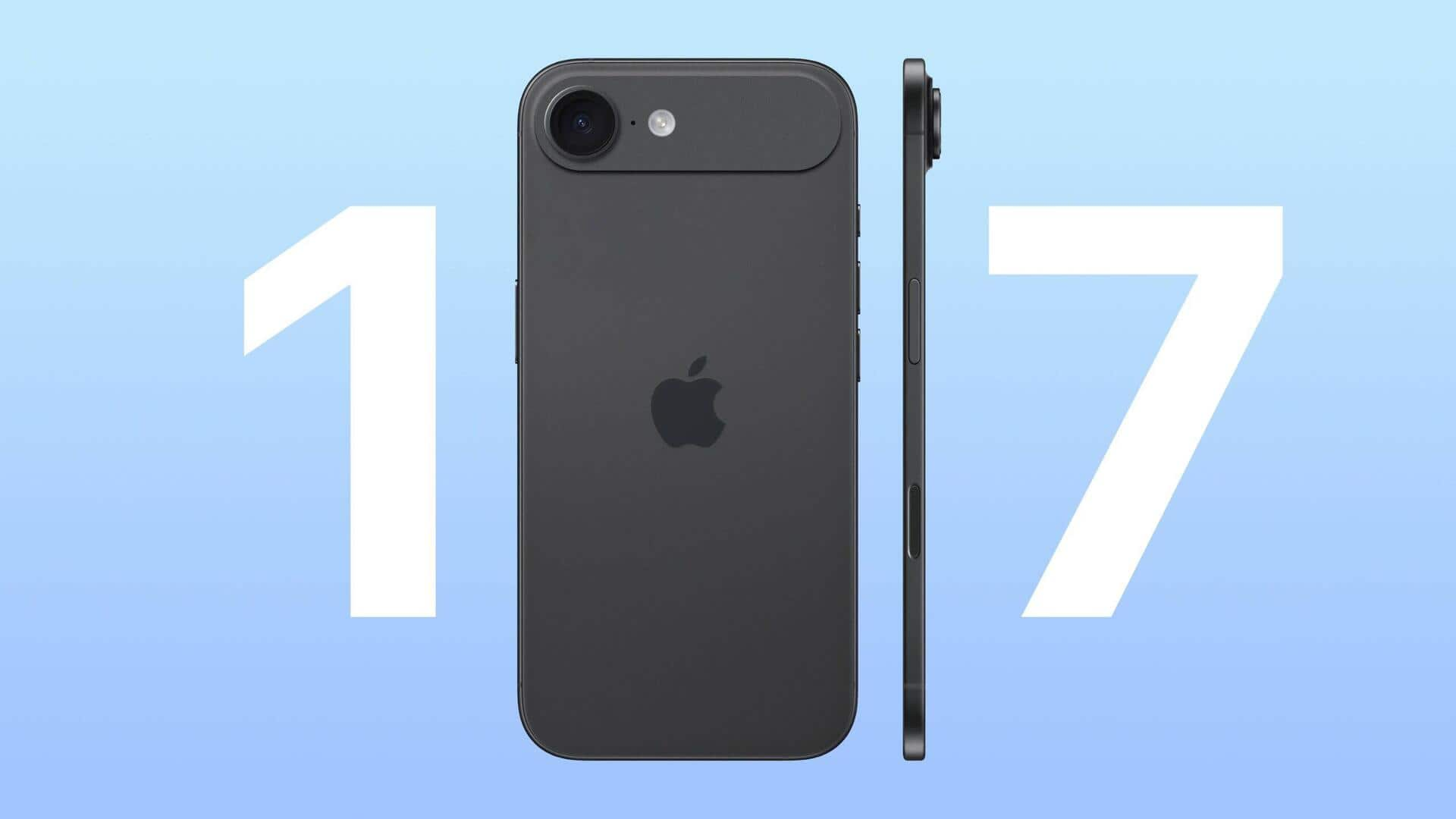
Battery life could be iPhone 17 Air's Achilles' heel, leak shows
What's the story
Apple is preparing to introduce a new 'Air' model within its upcoming iPhone 17 series set to debut next month. It is expected to replace current Plus variant in the lineup. Recently surfaced images, believed to show the device's internal battery, have sparked attention due to its notably low capacity. The iPhone 17 Air is likely to feature a single rear camera—similar to the iPhone 16e—and will stand out with an ultra-thin design measuring just 5mm in thickness.
Battery details
Battery capacity significantly smaller than iPhone 16
The leaked images suggest that the iPhone 17 Air will have a battery capacity of "around 2,900mAh." This is significantly smaller than the vanilla iPhone 16's 3,561mAh cell. Even though Apple devices are known for their efficiency, this new development has raised eyebrows among tech enthusiasts and industry experts alike. The leak underlines Apple's strategic decision to prioritise slimness over battery size, betting on optimization to compensate. Critics warn that real‑world battery performance may fall short for heavy users.
Design innovation
Steel casing for battery first introduced with iPhone 16 Pro
The iPhone 17 Air's battery will be encased in steel, a technology first introduced with the iPhone 16 Pro last year. The steel case is designed to improve heat dissipation and battery density due to its higher structural resistance. It also easily integrates with the L-shaped design of the phone's inner side, fitting its reduced-size logic board perfectly.
Replacement ease
New battery adhesives for easier replacements
The entire iPhone 17 lineup is expected to come with new battery adhesives, making replacements easier. This could be a major improvement over previous models where battery replacement was a complicated process. Despite the minimal battery, the iPhone 17 Air is expected to offer flagship-tier specs: a 6.6‑inch LTPO OLED display, a 48 MP camera, 8GB RAM, and 5G support. Initial price estimates in India are around ₹ 1 lakh, with US pricing possibly starting near $900.